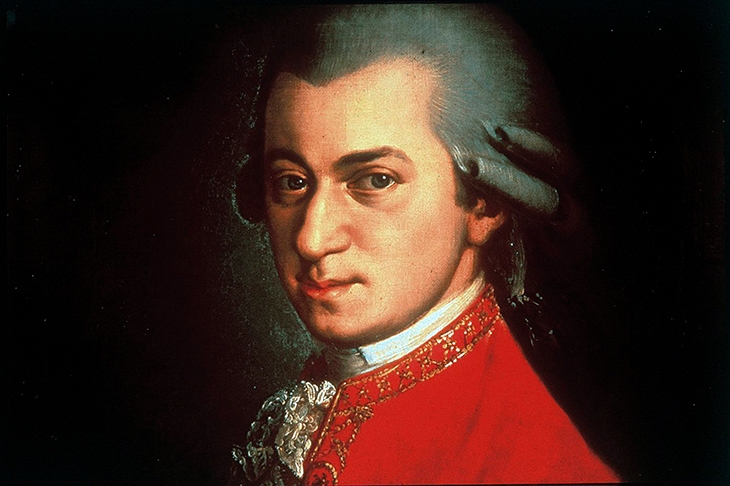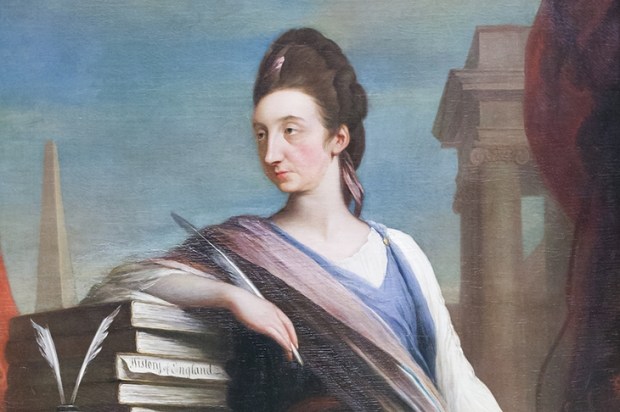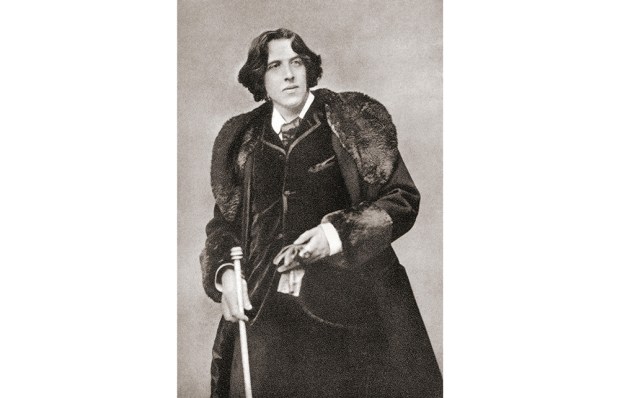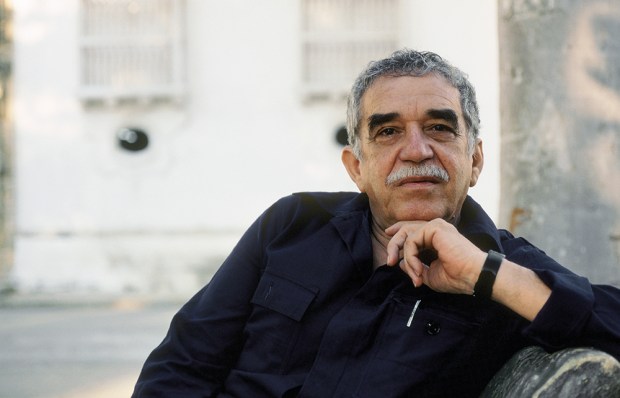‘My dear young man: don’t take it too hard,’ Joseph II counsels a puppyish Mozart, the colour of his hair unknown in nature. ‘Your work is ingenious. It’s quality work. And there are simply too many notes, that’s all. Just cut a few and it will be perfect.’ ‘Which few did you have in mind, your majesty?’, Mozart enquires, the sinisterly oleaginous F. Murray Abraham as Salieri quietly registering the subtle brilliance of Mozart’s grinning lèse-majesté.
Those interested in the subject of Miloš Forman’s 1984 film Amadeus are today faced with a not dissimilar predicament: which of the millions of words written about Mozart should we cut? And would they include any of Jan Swafford’s new cradle-to-grave-and-then-some biography, which comes in at 800 pages and which, for all its clear-sighted and passionate advocacy, can’t quite dispel the feeling that the ground beneath it is fairly well trodden?
This would depend entirely on where you place yourself on the biography spectrum. If you like your Nazis obscure or ordinary, this is not a book for you; Swafford’s investigations take him through the front door, not the scullery. Yet if you dislike biographies written by enthusiastic aristocrats or passionate newscasters (Mozart has had his share), if you feel now more than ever the need for public expertise, this is your book. Indeed, music biographies have shifted so much in the past decades that it is somewhat surprising to encounter one done the old-fashioned way.
Done well, of course; Swafford has too much form to do otherwise. And his composer’s eye is drawn to things others miss, much like the eyes of Berlioz and Schumann. There is also a cracker of a subplot, which ends up being anything but: Enlightenment rejection of religious doctrine and the consequent elevation of reason and critical thinking, with immediate ramifications in art and music. ‘One critical development of the Enlightenment,’ Swafford writes, ‘was that art escaped from religion and into the larger world.’
And with this seed planted, there is a subtle, though unmistakable, shift in the way we go on to view Mozart’s astonishing output in these pages. He may not have invented new forms (though of course he perfected old ones), yet to look at Mozart’s three monumental collaborations with Lorenzo Da Ponte through the prism of the Enlightenment is to recognise them as bold assertions of modern philosophical thinking, full of wit, irony, passion and gorgeous, flawed characters. The librettist’s royal patronage and the composer’s earlier church career in no way inhibited them in the secular and down-to-earth world they made their characters inhabit.
There are modern twists in Swafford’s narrative. He is unsparing of Mozart’s father Leopold, whom he depicts as a grifting Fagin-type, dispatching his children to fleece the rich and pocketing most of their plunder. And he is scrupulously determined to separate the verifiable wheat from the mythological chaff, though more chaff makes it through than one would suppose. He loves background colour, picking out from Casanova’s Mémoires a description of an orgy — ‘There were seven or eight girls, all of them pretty, three or four castratos… and five or six abbés’ — and in a flash we know not simply Anthony Burgess’s likely inspiration for the opening of Earthly Powers (‘It was the afternoon of my 81st birthday, and I was in bed with my catamite…’), but also the delicious overlap between church, the opera and prostitution in the late 18th century.
Yet in many ways Leopold is Swafford’s greatest friend. It is Leopold in his letters who observes the stinking latrines and dirty servants at Versailles, and it is Leopold who goads his brilliant son in print over his behaviour or latest composition or choice of bride. It is Leopold who writes with a mixture of pride and vanity of the gold pocket-watches and snuff boxes the young Mozart is rewarded with on the road, and Leopold once more who recognises the seismic importance of Italian opera to his son’s career and development as a composer.
Yet when Mozart emerges from Leopold’s shadow, his humour and sheer brilliance are fully formed: ‘7:30 to Hagenauer’s to watch the horse take a shit,’ he writes in his sister’s diary at one stage, and immediately the genius composer makes way for the impossibly vivid young man.
In the century following Mozart’s death Eugène Delacroix would record in his diary his wretched final conversations with Chopin as they shared a carriage up and down the Champs-Élysées: how Chopin was disparaging about Beethoven’s need to seem original, to turn his back to eternal principles. ‘Mozart never does this,’ Chopin told Delacroix: ‘Each part has its own movement which, although it harmonises with the rest, makes its own song and follows it perfectly.’ Swafford tells this exact same story with clarity and great empathy. And many more words.
Got something to add? Join the discussion and comment below.
Get 10 issues for just $10
Subscribe to The Spectator Australia today for the next 10 magazine issues, plus full online access, for just $10.
You might disagree with half of it, but you’ll enjoy reading all of it. Try your first month for free, then just $2 a week for the remainder of your first year.














Comments
Don't miss out
Join the conversation with other Spectator Australia readers. Subscribe to leave a comment.
SUBSCRIBEAlready a subscriber? Log in